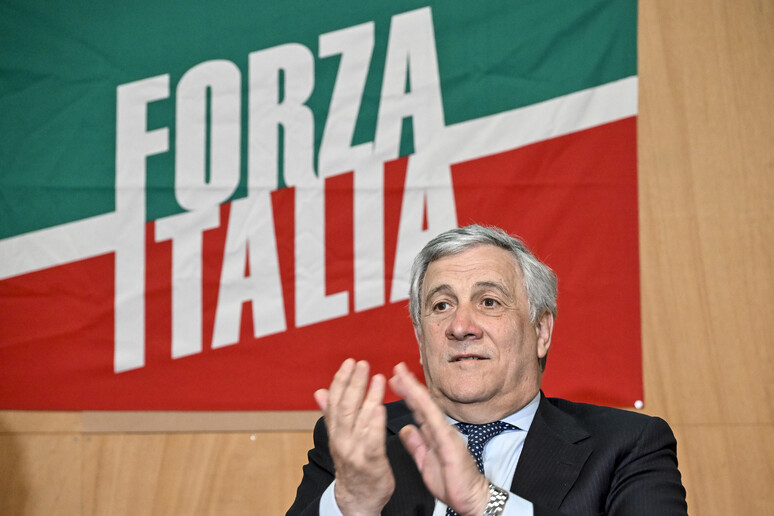Deputy Premier and Foreign Minister
Antonio Tajani said Tuesday that a bill seeking to ban the use
of foreign words in official Italian documents was not proposed
by the government, but by an individual lawmaker, and dismissed
talk of it being a sign of nostalgia for Benito Mussolini.
"It's the bill of a parliamentarian, not of the government, and
bills have to be passed by the Lower House and the Senate,"
Tajani told reporters at the Foreign Press Association in Rome
when asked if the bill had a 'Mussolinian flavour'.
"The defence of the Italian language has nothing to do with
Mussolini.
"Fascism ended in 1945, it's in the past and it does not
interest us and does not concern us.
"Mussolini did more damage than useful stuff.
"I have always defended the Italian language. It's the mother
tongue.
"Dante Alighieri is the poet of Italian".
The bill was presented by Fabio Rampelli, an MP for Premier
Giorgia Meloni's right-wing Brothers of Italy (FdI) party.
It would institute fines ranging from 5,000 to 100,000 euros
for public employees using foreign instead of Italian words in
any public communication, for firms that use foreign terms for
job titles, and for schools and universities using non-Italian
expressions, unless this is justified by the presence of foreign
students.
"The use of Italian will be obligatory for using all goods and
services, and in all other walks of life, where non-Italian
terms have become rife leaving many people baffled," Rampelli
said.
Rampelli's bill said: "Anglo-mania has negative repercussions on
the whole of society...and the spread of English undermines and
mortifies Italian," adding that "the inconsiderate use of
English words and acronyms defining roles in companies is
paradoxical, in light of the UK's choice to leave Europe".
The left-leaning opposition 5-Star Movement (M5S) accused the
FdI of inconsistency since the industry ministry has been
renamed 'Made in Italy Ministry', saying "does Rampelli want to
disown his colleague Adolfo Urso, the business and made in Italy
minister?"
The centre-left opposition Democratic Party (PD) has accused the
government of wanting to turn the clock back to the days of
Fascist 'autarky', or self-sufficiency, when many foreign terms
were banned, cocktails were renamed Arlecchino ('Harlequins')
due to their bright colours, and jazz legend Louis Armstrong
became 'Luigi Braccioforte'.
It also noted that Meloni herself used an English term to call
herself an "underdog", in English, when describing her rise to
the premiership last September, breaking the glass ceiling to
become Italy's first woman prime minister.
Meloni on Monday called for the creation of a "Made in Italy
liceo" to improve on commercial and technical institutes'
vocational training for the business world.
The Times of India on Monday applauded Rampelli's bill and many
of its millions of readers' comments echoed that sentiment.
The issue of using English instead of Hindi or even Sanskrit is
keenly felt on the sub-continent.
English is one of India's official languages but its use is
often described, and not just by the ruling Hindu nationalists,
as "baggage from colonial domination, to be abolished", noted
India's biggest selling English language daily.
The use of foreign words and terms in Italian, for the most part
English, is an increasingly common occurrence which was
stigmatized by former premier and ex-European Central Bank chief
Mario Draghi.
Draghi, sho speaks fluent English, last year chided people for
using foreign terms to try to sound more important, saying
Italian was a beautiful and expressive tongue that needed no
substitute and observing that many people who do not know
English, the main culprit, are left in the dark by officials who
fail to use the language of Dante and opt for Anglo equivalents.
ALL RIGHTS RESERVED © Copyright ANSA











